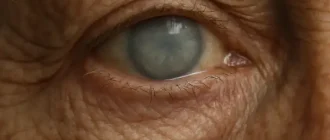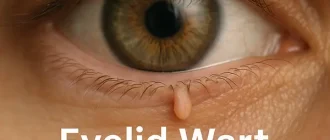Eye injuries are among the most common reasons for emergency room visits related to vision. Whether it’s a minor irritation or a serious trauma, prompt action can prevent long-term damage to your eyesight. This article provides an in-depth look at the different types of eye and eyeball injuries and the most effective treatments available.
Types of Eye and Eyeball Injuries
Frequency of Different Types of Eye Injuries
Eye injuries can vary widely in severity, from mild irritation to significant trauma that could threaten vision. Here’s a detailed overview of the common types:
| Injury Type | Description | Common Causes |
|---|---|---|
| Corneal Abrasion | Scratches on the surface of the cornea | Fingernails, dust, or foreign bodies |
| Foreign Body | Small objects in the eye | Metal shavings, wood chips, sand |
| Chemical Burns | Damage from caustic substances | Cleaning agents, industrial chemicals |
| Hyphema | Blood in the anterior chamber | Blunt trauma, sports injuries |
| Orbital Fracture | Broken bones around the eye socket | Car accidents, sports impacts |
| Retinal Detachment | Separation of the retina from the back of the eye | Blunt force trauma, eye surgery |
Corneal Abrasion
A corneal abrasion is one of the most frequently reported injuries, accounting for nearly 40% of all minor eye injuries treated in emergency departments. This type of injury involves a scratch on the clear, protective layer at the front of your eye. It’s typically caused by accidental contact with a fingernail, dust particles, or other foreign bodies.
Remedy: The initial step is to flush the eye with saline solution or clean water. Most corneal abrasions heal within 24-48 hours with antibiotic eye drops, which cost between $20 and $60 depending on the brand and pharmacy.
Foreign Body in the Eye
Foreign bodies—such as metal shavings, wood chips, or sand—can lodge in the eye, causing irritation, tearing, and pain. It’s crucial not to rub the eye, as this could make the injury worse.
Remedy: Seek medical attention if flushing with water doesn’t remove the object. Specialized equipment, like a slit lamp, may be used to locate and remove the foreign body. Removal in a clinic can cost around $150 to $300.
Chemical Burns
Chemical exposure to the eyes is a particularly dangerous type of injury. Alkalis tend to be more damaging than acids due to their ability to penetrate deeper into eye tissue. Household cleaning agents are a common culprit, which is why safety precautions are essential when using them.
Remedy: Immediate and continuous flushing of the eye is essential for at least 15-30 minutes. Medical follow-up is usually necessary, and failure to act quickly can lead to permanent damage or even blindness.
Types of Trauma and Their Remedies
| Trauma Type | Symptoms | Recommended Remedies |
|---|---|---|
| Blunt Trauma | Bruising, swelling, blurred vision | Apply cold compress, seek medical care |
| Penetrating Trauma | Sharp pain, bleeding, decreased vision | Do not apply pressure, go to ER immediately |
| Radiation Injury | Pain, light sensitivity | Use lubricating drops, avoid UV exposure |
Blunt Trauma and Hyphema
Blunt trauma, which can occur during sports or accidents, is often associated with hyphema, a condition where blood pools in the anterior chamber of the eye. Hyphema requires careful monitoring to avoid complications such as glaucoma.
Remedy: Applying a cold compress to reduce swelling is typically the first course of action. Severe hyphema might necessitate surgical intervention if pressure in the eye increases. Costs for such surgeries can range from $1,000 to $4,000.
Orbital Fractures
Orbital fractures, or broken bones around the eye socket, are often caused by high-impact injuries like car accidents or being struck by a ball. Symptoms include bruising around the eye, double vision, and restricted eye movement.
Remedy: Treatment might involve surgical repair depending on the severity. Surgery to correct orbital fractures generally costs between $5,000 and $10,000.
Retinal Detachment
Retinal detachment is a serious condition that can lead to permanent vision loss if not addressed promptly. It often occurs after severe trauma, leading to symptoms like sudden flashes of light or a “curtain” over the field of vision.
Remedy: Surgery is almost always required to reattach the retina, with costs ranging from $3,000 to $7,000 depending on the procedure required.
Prevention is Key
| Safety Measure | Effectiveness | Suitable for |
|---|---|---|
| Protective Eyewear | Reduces injury risk by 90% | Sports, industrial work |
| Caution with Chemicals | Minimizes exposure to burns | Household and industrial use |
| Proper Handling of Tools | Prevents foreign body injuries | Construction, DIY tasks |
Advice from Our Editorial Team
When it comes to eye injuries, prevention is always better than cure. Wearing protective eyewear during activities like sports or construction work can reduce the risk of injury by up to 90%. If an injury does occur, timely intervention is crucial to minimize long-term damage. Remember, your vision is irreplaceable—don’t take any chances if you suspect a serious eye injury. Always seek professional medical attention rather than attempting self-treatment.





